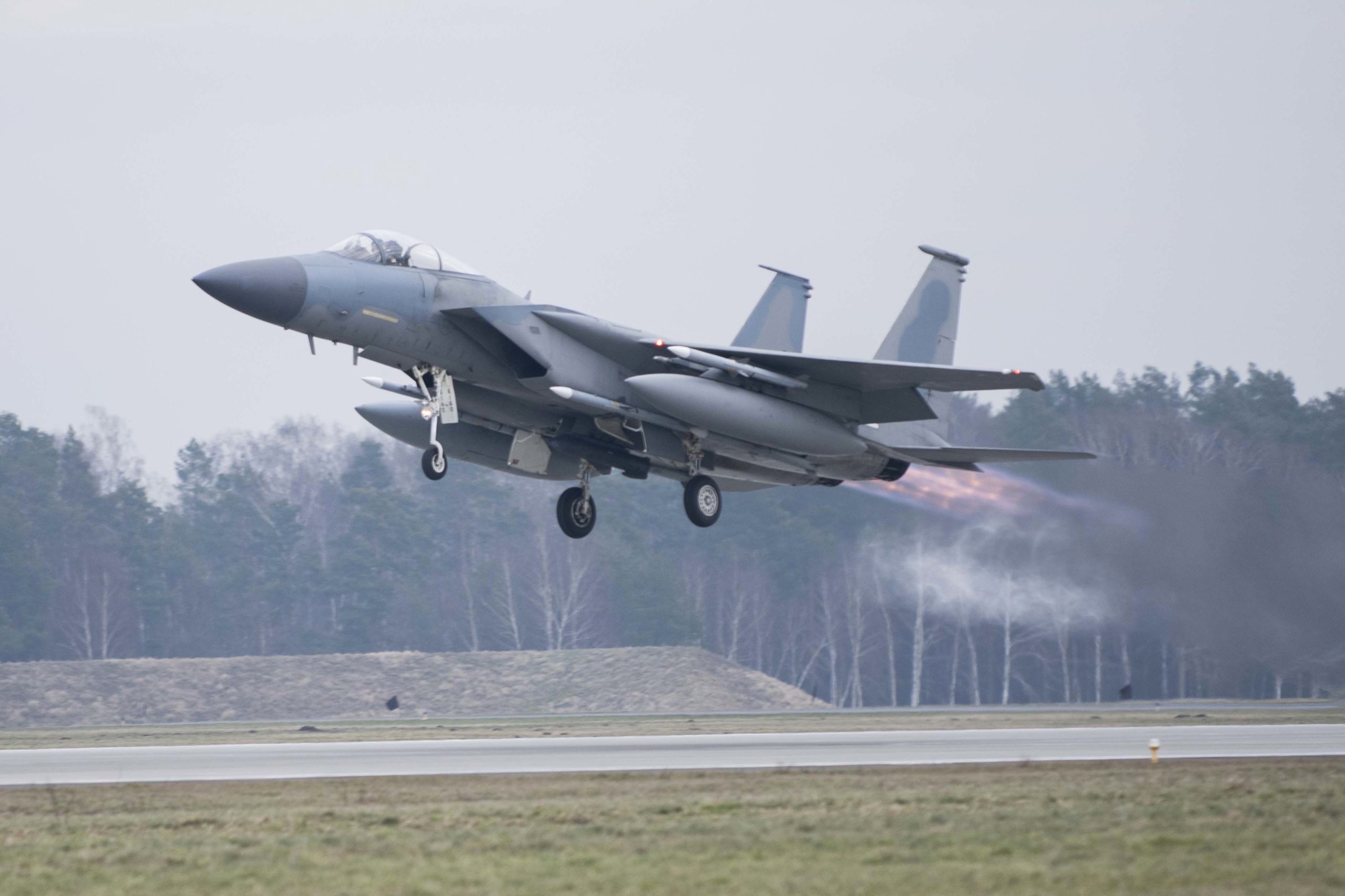
The United States has approved $US20 billion ($30 billion) in arms sales to Israel, including scores of fighter jets and advanced air-to-air missiles, the State Department announced.
Congress was notified of the impending sale, which includes more than 50 F-15 fighter jets, Advanced Medium Range Air-to-Air Missiles, or AMRAAMs, 120 mm tank ammunition and high explosive mortars and tactical vehicles and comes at a time of intense concern that Israel may become involved in a wider Middle East war.
However, the weapons are not expected to get to Israel anytime soon, they are contracts that will take years to fulfil. Much of what is being sold is to help Israel increase its military capability in the long term.
READ MORE: Released Palestinians describe worsening abuses in Israeli prisons
“The United States is committed to the security of Israel, and it is vital to US national interests to assist Israel to develop and maintain a strong and ready self-defence capability. This proposed sale is consistent with those objectives,” the State Department said on Tuesday. (Wednesday AEST).
The Biden administration has had to balance its continued support for Israel with a growing number of calls from politicians and the American public to curb military support there due to the high number of civilian deaths in Gaza.
It has curbed one delivery of weapons amid continued airstrikes by Israel in densely populated civilian areas in Gaza.
The contracts will cover not only the sale of new 50 aircraft to be produced by Boeing. It will also include upgrade kits for Israel to modify its existing fleet of two dozen F-15 fighter jets with new engines and radars, among other upgrades.
READ MORE: Woman charged with murder after girl, 10, found dead on Gold Coast
The jets comprise the biggest portion of the $30 billion in sales with the first deliveries expected in 2029.
Meanwhile, Iran’s threatened retaliatory strike on Israel over the assassination of Hamas official Ismail Haniyeh drew major world powers into a high-wire act of diplomacy.
Halting or limiting an Iranian strike in some eyes could bolster a months-long effort to reach a cease-fire in a war that’s devastated the Gaza Strip and killed nearly 40,000 Palestinians, according to the territory’s health ministry.
It could also free the Israeli hostages who remain captive there since Hamas’ October 7 attack on southern Israel that killed 1200 people and began the conflict.
Failure to do so could see Iran launch a complex drone-and-missile attack in tandem with Lebanon’s Hezbollah militia, now separately aggrieved over Israel’s killing of one of its top commanders, straining the ability of Israel’s missile defences and its allies to defend against the assault.
READ MORE: Pilot’s night before luxury hotel crash revealed
Widespread losses could push Israeli Prime Minister Benjamin Netanyahu’s hard-line government into its own direct attack on Iran — and drag the wider Middle East into a regional war.
That fear has prompted a flurry of diplomacy in the region. France, Germany, and the United Kingdom on Monday urged Iran and its allies to “refrain from attacks that would further escalate regional tensions and jeopardise the opportunity to agree (to) a cease-fire and the release of hostages.”
But Iran’s new reformist President Masoud Pezeshkian has acknowledged he will follow the orders of Iranian Supreme Leader Ayatollah Ali Khamenei, who already said Israel “paved the way for a severe punishment upon itself with this action.”
links to content on ABC
9News





